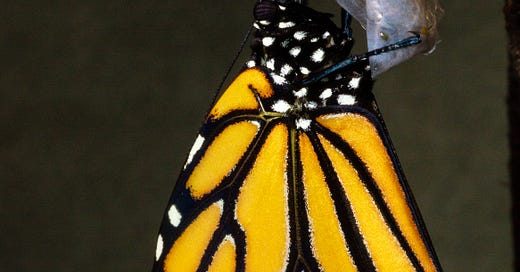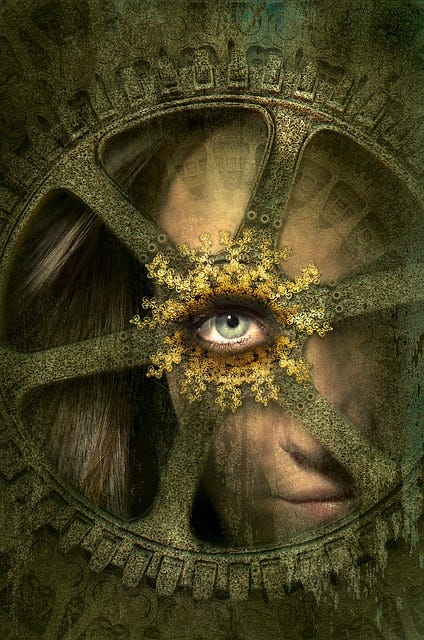Creating the Webbd Wheel: Individuation
In which we find ourselves ...
The transformational journey we take from childhood to an adult sense of self is traditionally thought of as an adolescent phase. Perhaps in a perfectly healthy culture it would be. However, as a late-bloomer shaped by an unhealthy culture, individuation has been a lifelong process for me, most of my progress occurring in the last ten years.
Many obstructing and supporting variables influence individuation. It’s a complicated, messy process to be involved with, both as a person undergoing it and as a witness, particularly a parental witness.
In traditional cultures the journey of individuation was marked by ritual and fully supported by the tribe. The threshold between childhood and adulthood was sacred and successful individuation celebrated and acknowledged by all.
Sadly, our modern society has replaced the old ways with teenage culture, referred to with an eye roll, a shake of the head, a pitying smirk. Many of us feel not only unsupported, but brutally obstructed from individuating, as though growing up and feeling our way into adulthood is a shameful journey we are ill-equipped for and will inevitably fail, embarrassing our tribe and ourselves. Often, we’re given to understand our desire for independence is a betrayal.
Yet the path into adulthood is one of the most powerful paths we walk in our lives, and we all have it in common, though some crawl along it for years and others turn off it and never find it again.
Many of the characters in The Hanged Man are on the journey of individuation, and in my world that journey is recognized by rite and ritual and supported by leaders and peers. That’s what I wish for, for myself and others. The word “teenager” does not appear in the Webbd Wheel series. Individuation is not about an age range, but about growth, development, and choice, with all its attendant responsibilities and lessons.
Individuation is not a safe walk in a park with a reliable adult holding our hand. It’s a journey away from our familiar, secure lives where someone older and wiser is ready to steer our steps. Sometimes, individuation leads us to death. We go through pain, loss, fear, and disillusionment. We experience consequences nobody can save us from. We begin to know ourselves, the good, the bad, and the ugly. We discover we are not the center of the universe. We begin to see the world and the people around us more clearly. If we survive and are well-supported, we begin to build resilience.
Individuation is not a phase, a teenage rebellion, or a counterculture odyssey to “find myself.” It’s not a joke. It’s meaningful. It’s important. It’s powerful and dangerous. It deserves time, attention, and support. It’s the time when we begin writing the story of our own lives.
In post #13 of The Hanged Man, a young brother and sister join Persephone, Rapunzel, Eurydice, and others in the journey into adulthood. One will complete the journey. One will not. But the journey itself is worthy of attention, regardless of the ending.
It’s important to remember as young people grow up and fly into the world their parents are also forced into a journey from active parenthood into something new. We often pass this off as “empty-nest syndrome,” with a smile and a shrug, but this journey, too, is powerfully important and sacred, and can be filled with lonely anguish. It’s all connected. It’s all part of the wheel of life.
(This essay was published with post #13 of The Hanged Man.)




